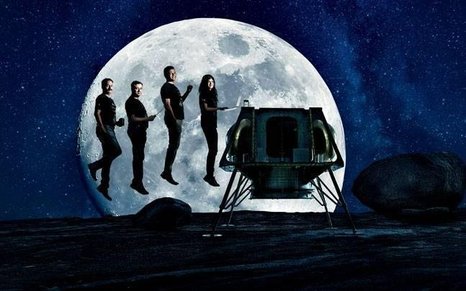TeamIndusA private Indian aerospace startup, on a mission to land on the Moon.Team Indus is one of five groups in race to put a privately funded spacecraft on the Moon.This Bengaluru-based start-up is competing against four other teams from around the world for the Google Lunar X-Prize. The winner will be the first to roam at least 500m (1,640ft) on the lunar surface and stream hi-resolution imagery back to Earth.
|
Meet TeamIndus
|
TeamIndus A Bengaluru-based start-up is one of the five teams across the world that have been shortlisted this January to compete in the greatest private space race ever-the Google Lunar X Prize. The other four teams that have qualified are Moon Express (US), SpaceIL (Israel), Hakuto (Japan) and Synergy Moon (an international consortium). The competition, sponsored by Google and kicked off in 2007, is designed to challenge engineers, entrepreneurs and innovators from around the world to develop low-cost methods of robotic space exploration by privately funded teams.To win the prize, the teams must successfully place a vehicle on the moon, travel 500 metres across its surface and transmit images and videos back to earth.
Founded by IIT-Delhi alumnus Rahul Narayan, Team Indus is competing in the Google Lunar X Prize (GLXP) Challenge for a grand prize of $20 million. Currently among the top five - down from 32 competitive companies across the world - it is the only team from India to get this far in the competition. "There's never been a private mission to the Moon before," says Chanda Gonzales-Mowrer, senior director of the Lunar XPRIZE. "We see this competition as a way to kick-start this private industry moving towards space exploration." It's a hope shared by Narayan and Team Indus' backers, for whom the Lunar prize is merely the first milestone in a more ambitious project. The company already plans to put lightweight satellites into orbit, and there are murmurs of an expedition to Mars. Like so many other children of the 80s, Narayan became obsessed with space after watching Carl Sagan's TV series Cosmos. Star Wars was playing in the cinema, Star Trek on TV. Narayan's head was full of astronomical dreams. Then reality bit. "Back in the 80s, the opportunities were limited," Narayan says. "Space became one of those things that you realise could never become your profession." Narayan settled for computer science. When he graduated, he founded a series of software startups in New Delhi. Then, seven years ago, one of Narayan's US clients mentioned a team of amateur space scientists. Narayan typed "Lunar XPRIZE" into Google. Narayan never had a clear plan to enter the competition. "There just came a point where the registration deadline was so close we had no option but to register, otherwise we'd be locked out," he says. Narayan and his co-conspirators threw together a plan, then they collated their savings for the $50,000 entry fee. For the first year or two, Narayan pondered the preposterous challenge he'd set himself. He knew he needed money, but every investor Narayan met was put off by his inexperience. He and his partner, Julius Amrit, were "laughed out of the room" on more than one occasion. One day, Nirmal Gadde, an engineering student, walked into the office to request an internship. Gadde produced a smart and practicable outline for how the team might stage a Moon landing. The work was legitimising. When people asked the difficult questions, Narayan finally had some answers. Over the past decade, that plan has evolved, but the fundamentals have remained resolute. The prize, if all goes according to plan, will be won for Team Indus by a humble Rover, a lunar exploration vehicle about the size of a large dog, with Wall·E-esque goggle eyes. It will drive 500 metres, take a photograph, and send the evidence back to Earth. "It's all been a lot like falling in love," Narayan says. "Only you know the reasons why it'll work, and they can be difficult to articulate. But there was never any point where I felt it was all lost. It's been more than six years now. Not once have I thought about shutting it down. It's that voice inside. It's following your dream to say: 'This will happen if we just keep going.'" Bring TeamIndus to Motivate your teams to dream the impossible and achieve the seemingly unachievable. Their talk is about challenges faced , Innovation and a celebration of all things great about our country – the audacious goal, the young bright engineers, the can-do entrepreneurial spirit, As Rahul Narayan of TeamIndus puts it, " We believe that tomorrow's solutions will come when we break away from the dogmas of the past, collaborate by questioning what is, and combine enthusiasm with experience in new, inspiring ways." Har Indian Ka Moonshot is not just TeamIndus’ audacious mission to the moon, it’s about every Indian having the opportunity to be a part of this mission and achieving their own moonshots while at it. It is a tribute to every Indian who aspires to make a difference – the dreamers and the change-makers. |
|


